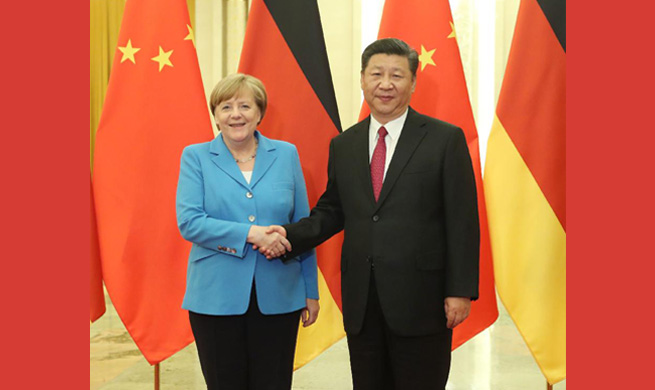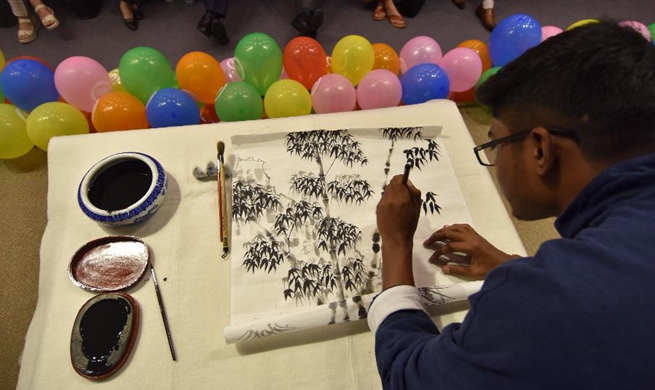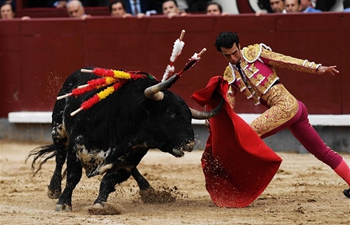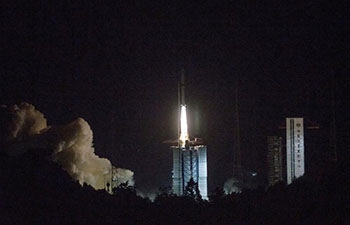WASHINGTON, May 24 (Xinhua) -- American scientists have found a connection between bacteria in the gut and antitumor immune responses in the liver, according to a study published on Thursday in the journal Science.
A team led by researchers in the Center for Cancer Research (CCR) at the National Cancer Institute (NCI) found that bacteria found in the gut of mice affect the liver's antitumor immune function.
The findings have implications for understanding the mechanisms that lead to liver cancer and for therapeutic approaches to treat them.
"What we found using different tumor models is that if you treat mice with antibiotics and thereby deplete certain bacteria, you can change the composition of immune cells of the liver, affecting tumor growth in the liver," said Tim Greten, with NCI's CCR, who led the study.
The microbiome is the collection of bacteria and other microorganisms that live in or on the body. In humans, the greatest proportion of the body's total microbiome is in the gut.
Greten and his team used three mouse liver cancer models, and found that when they depleted gut bacteria using an antibiotic "cocktail," the mice that had the antibiotics developed fewer and smaller liver tumors and had reduced metastasis to the liver.
The investigators found that antibiotic treatment increased the numbers of a type of immune cell called NKT cells in the livers of the mice. In all three mouse models, the reduction in liver tumor growth that resulted from antibiotic treatment was dependent on these NKT cells.
Also, they found that the accumulation of the NKT cells in the liver resulted from an increase in the expression of a protein called CXCL16 on cells that line the inside of capillaries in the liver.
Knowing that bile acids can control the expression of CXCL16, the investigators treated mice with bile acids, so they changed the number of NKT cells in the liver, and thereby the number of tumors in the liver. Bile acids are formed in the liver and help break down fats during digestion.
Finally, the investigators found that one bacterial species, Clostridium scindens, controlled metabolism of bile acids in the mouse gut and ultimately CXCL16 expression, NKT cell accumulation, and tumor growth in the liver.
They found that bile acids also controlled the expression of the CXCL16 protein in the liver of humans, suggesting that the novel mechanism described in the study may potentially apply to cancer patients.

















